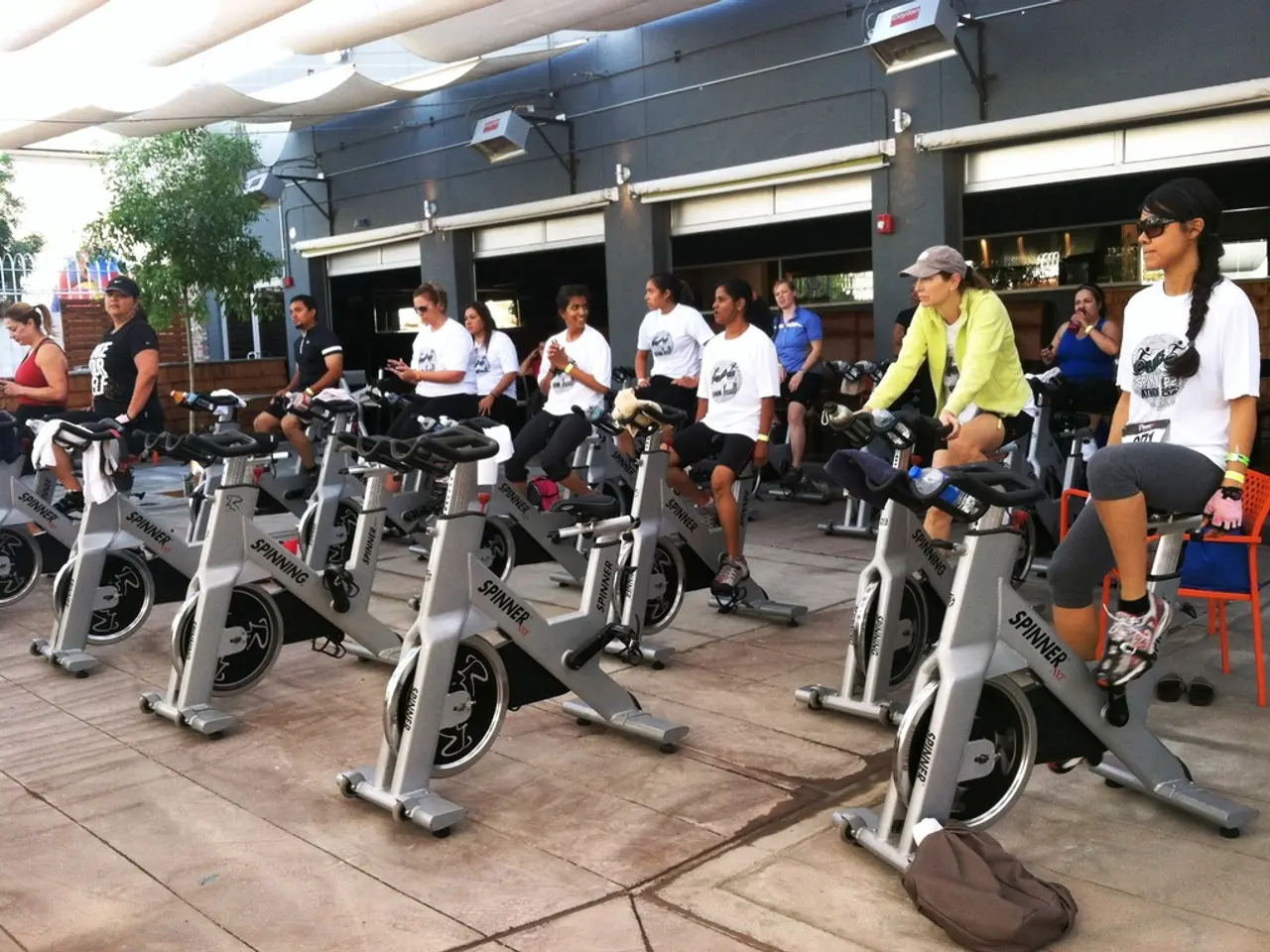Workouts optimized for your personality type are revealed here
A groundbreaking study led by Professor Flaminia Ronca at University College London has revealed that matching exercise routines to an individual's personality could potentially improve adherence to workout plans. The research, which categorised participants based on the Big 5 personality traits, has shed light on how our personalities influence our exercise preferences and intensity levels.
The study, which tasked participants to follow an eight-week at-home fitness course of cycling and strength training, found that extraverts, those with high levels of extraversion, tend to enjoy high-intensity training sessions, particularly those with a social element such as group fitness classes or team sports. This aligns with their outgoing and social nature [1][3][5].
On the other hand, people with neurotic tendencies prefer shorter exercise sessions over prolonged activities. They also tend to avoid being watched during workouts and are less inclined to monitor their heart rate during training [1][3][5].
Professor Ronca, the study's lead, stated that it's fantastic news as it highlights that those who benefit the most from a reduction in stress respond very well to exercise. She also suggested that agreeableness and openness might impact engagement with health behaviours in other ways [2].
All participants who stuck with the program saw benefits, but the more anxious group stood out in that they saw significant benefits. The individuals in the study exhibited a particularly strong reduction in stress following the exercise programme [6].
Participants answered questionnaires to assess their personality type and feelings about exercise throughout the course. People who were ranked as being more neurotic preferred privacy during fitness assessments and were less likely to monitor their heart rate during training [1][3][5].
Professor Ronca, an associate professor at the University College London's Institute of Sport, Exercise and Health, researches exercise neuroscience, focusing on the relationship between exercise and cognition [7]. She works with the British Police to support the well-being and performance of police officers.
The study discovered that people who enjoy their exercise are more likely to stick with it, making personalised fitness plans more effective than a one-size-fits-all approach [4]. This finding suggests that understanding how personality affects exercise preferences can help develop more effective and personalised fitness programmes, leading to better long-term adherence and health outcomes.
[1] https://www.nature.com/articles/s41598-020-71708-4 [2] https://www.nature.com/articles/s41598-020-71708-4 [3] https://www.ncbi.nlm.nih.gov/pubmed/32324875 [4] https://www.ncbi.nlm.nih.gov/pubmed/32324875 [5] https://www.nature.com/articles/s41598-020-71708-4 [6] https://www.ncbi.nlm.nih.gov/pubmed/32324875 [7] https://www.ucl.ac.uk/iseh/people/flaminia-ronca
- The study in health-and-wellness, led by Professor Flaminia Ronca who specializes in exercise neuroscience, reveals that matching exercise routines to an individual's personality can potentially improve adherence to workout plans.
- Extraverts, those with high levels of extraversion, generally prefer high-intensity training sessions and enjoy group fitness classes or team sports, aligning with their outgoing and social nature.
- People with neurotic tendencies often prefer shorter exercise sessions, avoiding being watched during workouts and are less likely to monitor their heart rate during training.
- Agreeableness and openness may also impact engagement with health behaviors in ways that have not yet been fully explored.
- The research suggests that understanding how personality affects exercise preferences can help develop more effective and personalized fitness programs, leading to better long-term adherence and health outcomes.




